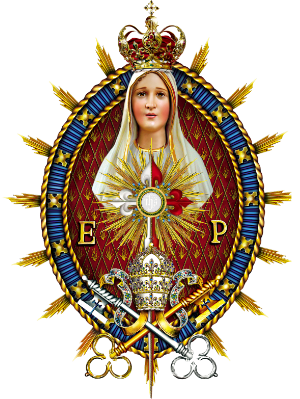Continuing Education and Permanent Formation
Kindergarten, grade school, high school, college… One may think that after obtaining a degree in higher education a Herald’s education is complete. Nothing could be farther from the truth. In fact, the founder of Heralds of the Gospel makes clear, not without a touch of humor, that:
“Since wisdom knows neither bounds nor limits, studies should continue permanently throughout one’s life; it is a condition for success in our apostolate. And if I only have ten minutes of life, there is still time to open a book…!”
Therefore, as significant as the training of a Herald is, it is a basic axiom that every Herald, once their initial education and formation has been completed, will continue their education through a program of permanent formation . Three major elements can be distinguished:
Individual study
In addition to individual reading, freely chosen according to one’s personal tastes and appetites, every Herald should dedicate a minimum of an half hour of study to theology, philosophy, history and related area of culture.
In order accomplish this, every house has well stocked library, especially in these subject areas. At the same time, it is incumbent of the superior to ensure that every Herald has sufficient time and the conditions to fulfill this obligation as well as to check that every Herald makes good use of their study time.
Study in community
In some way every moment of community life affords an opportunity for permanent formation. Meals are normally taken in silence and are accompanied by reading or by listening to the playback of recorded lectures. Among the common topics are commentaries on the daily readings at Mass, the teachings of the Fathers and the history of the Church. The occasional addition of other subjects provides a wide and rich variety so that learning never becomes dull or boring.
The superior of each community has the additional responsibility of organizing training sessions adapted to the age and maturity of the members, while the subject matter is be freely chosen, the quality of the training program is checked regularly.
Although permanent formation is not about keeping abreast of the news, it is nonetheless important that the members are informed about what is happening in the Church and the world. For this reason, there are designated Heralds in centers scattered throughout the world who form a decentralized network, operating much like a news agency, that collects and disseminates important news to every center.
Centralized formation
The Lumen Sapientiae Institute offers specialized training for superiors, formators and those with similar duties of providing permanent formation to others. Its goal is to continuously improve the knowledge, methods and techniques of those who are responsible for the permanent formation of other Heralds and draws on their vast experience to improve their capabilities.
Besides specific programs given occasionally on site anywhere in the world, the Institute normally uses the facilities at the main training center of the Heralds in Brazil, where its House of Priestly Formation and the vast majority of teachers are located. This location is a global reference point for Heralds, who usually stay for a minimum period of several weeks out of each year. Here they are able to sharpen their knowledge and, at the same time, it gives them an opportunity to share their mutual pastoral experiences and methods of apostolate. They can also catch-up on the latest news and events.
With an audience of more than a thousand people, prominent ecclesiastical and academic figures are invited to communicate their knowledge through conferences or specialized courses which are organized continuously by the Lumen Sapientiae Institute. The Institute benefits from its close association with the academic projects of Heralds of the Gospel (ITTA , IFAT , and IFTE), so that when any of these invite guest speakers, they are also available to lecture to senior members undergoing further training. This coordination allows the Institute to provide the best possible quality in its training curriculum.
Among the persons who have honored the Heralds with their presence are::
- His Eminence Claudio Cardinal Hummes, OFM
- His Eminence Franc Cardinal Rodé, CM
- His Eminence Odilo Pedro Cardinal Scherer
- His Eminence Alexandre José Maria Cardinal dos Santos
- His Excellency Jean-Louis Bruges, OP
- His Excellency Giuseppe Sciacca
- His Excellency Beni Benedito dos Santos
- His Excellency Fernando José Monteiro Guimarães, CSSR
- His Excellency José Aparecido Gonçalves de Almeida
- His Excellency Antônio Carlos Rossi Keller, Bishop of Frederico Westphalen
- His Excellency Enrico dal Covolo, SDB
- His Excellency Giovanni d’Ercole, FDP
- His Excellency Gil Antônio Moreira
- Reverend Monsignor Angelo Di Pasquale
- Reverend Monsignor Luis Fernando Rodríguez Velásquez
- Reverend Monsignor Blaz Jezersek
- The Reverend Bruno Esposito, OP
- The Reverend Mauro Mantovani
- The Reverend Luis Rosón Galoche
- The Reverend Cosimo Semeraro
- The Reverend Alberto Piola
- The Reverend Alfonso López Serna
- The Reverend Pablo Santiago Zambrano
- The Reverend Marcelo Neves, OP
- The Reverend Mateos José de García y Paredes
- Doctor Gusmán Carriquiry
- Doctor Gonzalo Soto Posada
- Doctor Ildefonso Murillo
- Doctor Martha Cecilia Lozano Ardila
These activities are carried out on a continuous basis and must reach Heralds anywhere in the world. Since it is impossible all of the Heralds spread throughout the world regularly gather in one place at the same time, the programs of permanent formation make extensive use of the latest technology especially the internet. This enables those Heralds, who are not able to be physically present, to participate at a distance participating in conferences in real time or downloading them for listening at a later time. In this way, even the most remote and distant communities of Heralds have the opportunity to benefit from the ongoing programs of permanent formation. This also contributes to strengthening the mutual bond and unity of the institution and to developing its charism.

